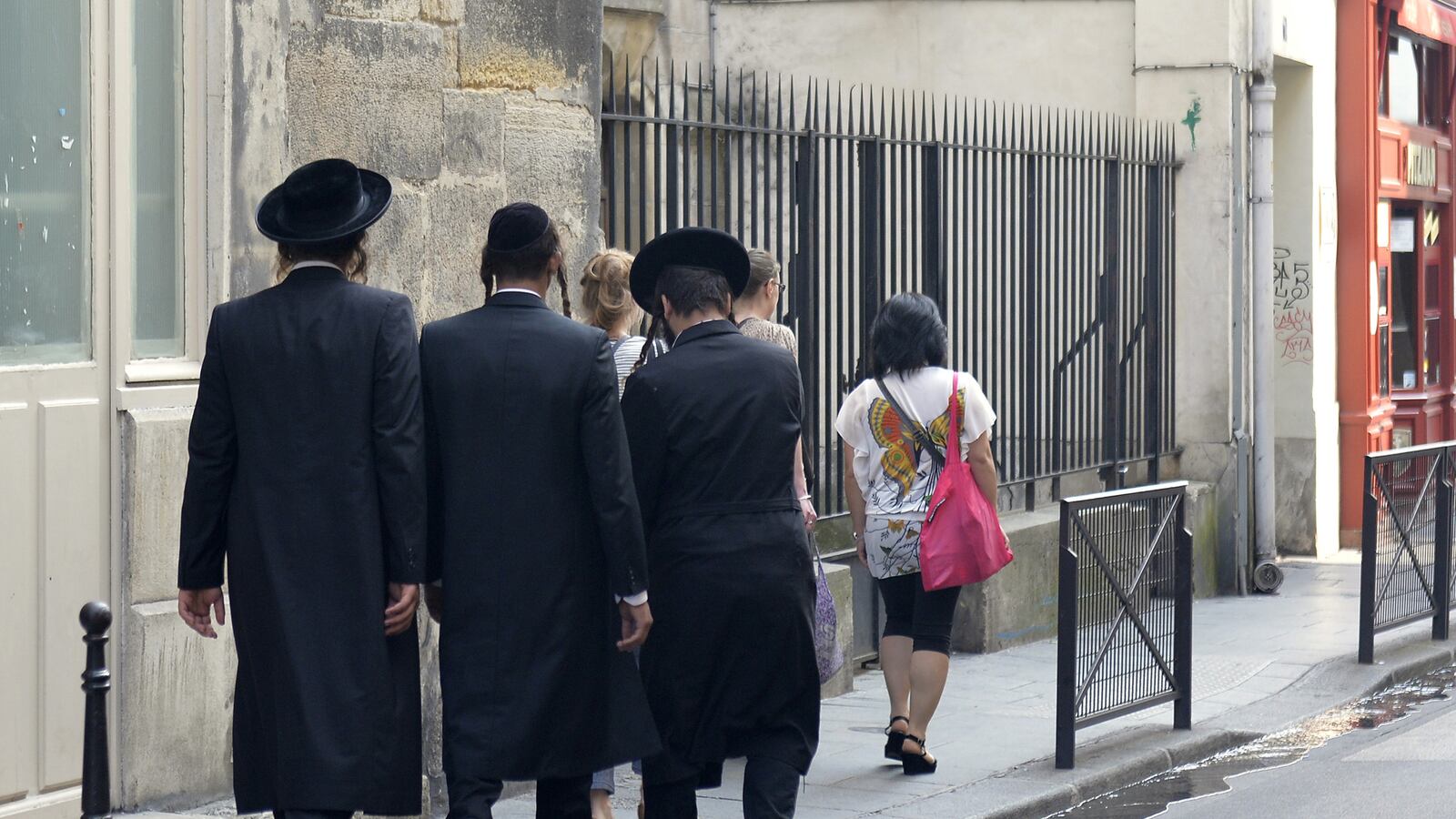In France, which houses the biggest Jewish community in Europe, the Ashkenazi legacy has been sadly shrinking. In the latter half of the 20th century, what French Jews call their imaginary Yiddishland has been reduced to a small patch of real estate. Consider: In a place once highly frequented by Ashkenazim like Deauville, a posh town of Normandy, Yiddish speakers have all but disappeared. Even more worrying, the Rue des Rosiers, the heartland of the Parisian Jewish community, has gradually become a kind of Disneyland for tourists looking for a quick shot of European Jewish culture. The whole neighborhood of Le Marais has been highly gentrified over the course of the last generation, adding a growing LGBT population and displacing the original Jewish one. As a result, Rue des Rosiers houses only a few kosher shops and kitschy delis, mostly dedicated to vistors rather than locals. A heartbreak…
However, there is reason for hope. In Paris, a new generation of entrepreneurs are launching initiatives to perpetuate the Yiddish way of life.
Take, for instance, Yiddish Mamma, a young Parisian brand that peddles its wares with love and humour. Riffing off the legendary stereotype of the coddling Jewish mother, its idea is to put a positive spin on the Ashkenazi heritage in France, in order to “move forward without forgetting.” Camille Vizioz-Brami, its brand creator, decided to mix fashion and fun with inscriptions such as “Power Yiddish Mamma,” “Super Mensch,” “Chepselleh” or “Klops forever” on sweatshirts, T-shirts and even tote bags. Its schmatès are available on Facebook and recently its vetements appeared on the pages of several trendy magazines, such as Elle or Les Inrockuptibles.

In a Parisian café, Vizioz-Brami tells us more about her project: “Even though we come from a culture where oral tradition is fundamental, from time to time, it is necessary to write down things. In some case, the spelling of the Yiddish words is approximate, as each family had its own way of saying things.”
Vizioz-Brami is just one of dozens of young artists and entrepreneurs who are trying to bring back France’s rich Jewish heritage into everyday life. The success enjoyed by Schwartz, a delicatessen where you can eat a delicious pastrami sandwich and some XXL pickles, is a prime example. Located on the Rue des Ecouffes, just a few blocks away from St-Paul metro station, the restaurant caters to a wide range of clients, from Le Marais hipsters to Le Trocadéro princesses. The restaurant is so busy that Schwartz recently decided to open two additional locations, including a restaurant on rue d'Eylau, a few steps from the Eiffel Tower. That’s clearly a great success in a land where the Sephardic community is now much larger than the Ashkenazi one.
So why is Yiddish life enjoying a sudden rebirth in Paris? The answer has much to do with the gradual disappearance of old Parisian Ashkenazi and their lifestyle. The less active those elders are, the more the new generation seeks to preserve their habits.
While walking in Saint-Germain-des-Prés, I was recently having a chat with Lola Rykiel, granddaughter of fashion icon Sonia Rykiel, about the importance of the Ashkenazi roots for our generation. The young It-girl and PR director based in New York is considering her heritage as “a source of inspiration” and a crucial element of her identity. There are now thousands of young French Jews like Lola Rykiel who are seeking to pass on this Ashkenazi legacy through art, fashion, food. The trend is even percolating online. Launched in October 2011, Jewpop.com, a French equivalent to Heeb, has progressively grown to become a trendy and alternative voice for French Jews. The key to Jewpop’s success is its willingness to popularize Jewish humour, even to a non-Jewish audience. For Alain Grant, its founder, “Jewpop is a trendsetter but it’s full also full of references to the Yiddish heritage.” Symbolically, the website logo pays tribute to two famous Ashkenazi comedians of the late ’50s, Shimon Dzigan and Israel Schumacher. A 2.0 way to mix heritage and modernity.
Laurent David Samama is a Paris-based journalist and documentary director. He works for Les Inrockuptibles, Le Point and La Règle du Jeu. He was Chief Editor for l'Arche in 2011. Follow him at @ldsamama






